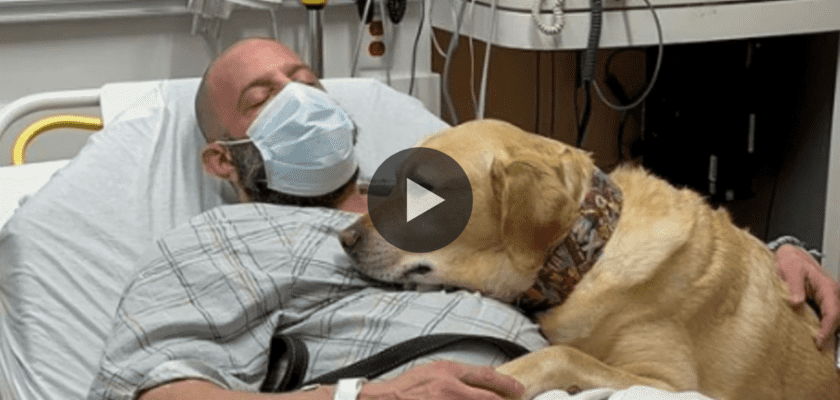.
The loyal and resilient dog that stays with the owner when he is sick makes people around him emotional when he sees these beautiful and touching images.
he loyal and resilient dog that stays with the owner when he is sick makes people around him emotional when he sees these beautiful and touching images.
That is why we weren’t surprised to hear about a loyal dog named Magnus. When his human, Brian Benson, went into the hospital, Magnus did something that was above and beyond.
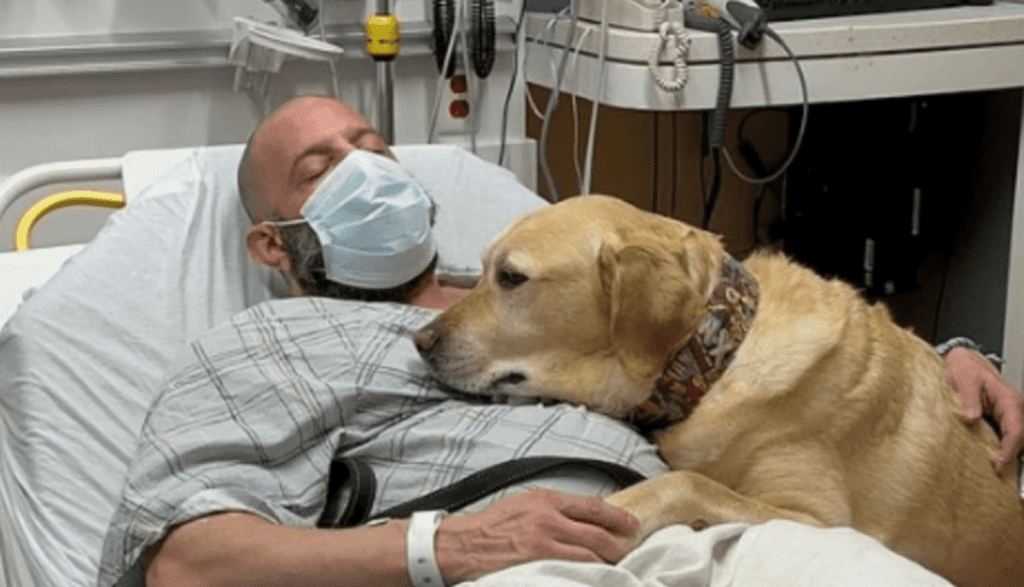
As shared on Instagram, Benson was ha
That is why we weren’t surprised to hear about a loyal dog named Magnus. When his human, Brian Benson, went into the hospital, Magnus did something that was above and beyond.
As shared on Instagram, Benson was having a difficult time breathing and went to the ER. They kept them for three nights, trying to determine what was wrong.
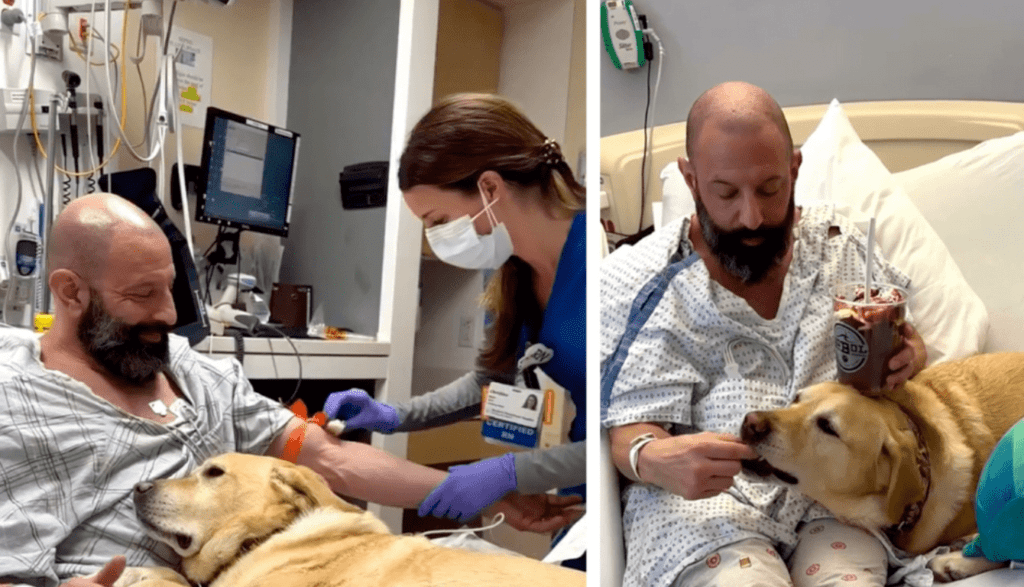
Magnus comforts his ailing owner, Brain Benson, in the hospital in late January 2023. (Courtesy of Brian Benson and magnusthetherapydog)
If you’ve ever spent time in the hospital alone, you realize it can be stressful. That is especially true when you don’t know the problem and are just waiting to hear what you expect to be bad news.

During all that time, Magnus stayed right there with him and gave him some relief. He also was there with his young daughters.
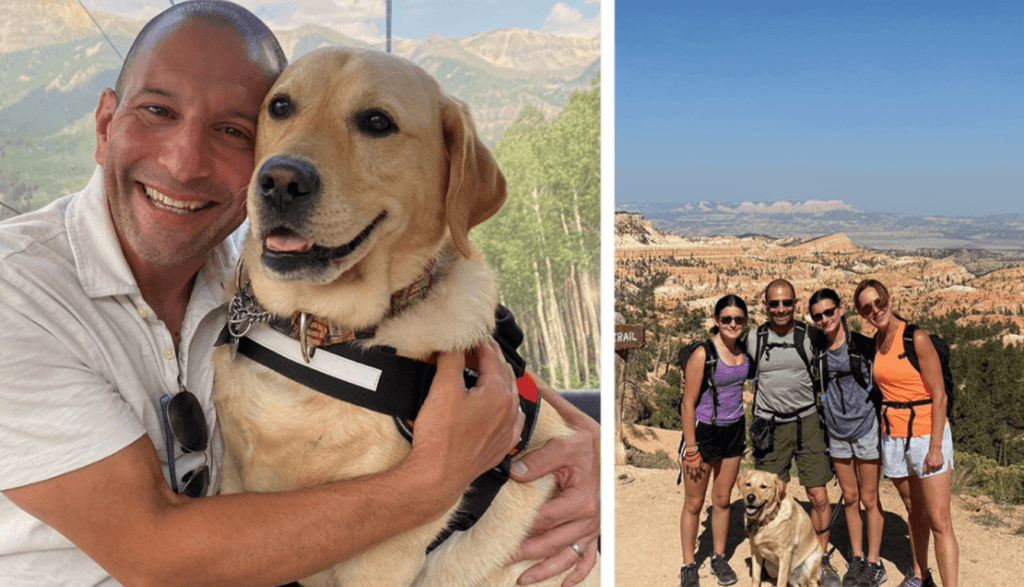
Brian Benson, his family, and Magnus enjoying time together in the outdoors. (Courtesy of Brian Benson and magnusthetherapydog)
On Instagram, Benson shared that he had gone into the emergency room and hoped it was nothing, but it turned out it was potentially serious. His family wasn’t allowed in after visiting hours, but Magnus could stay the entire time.
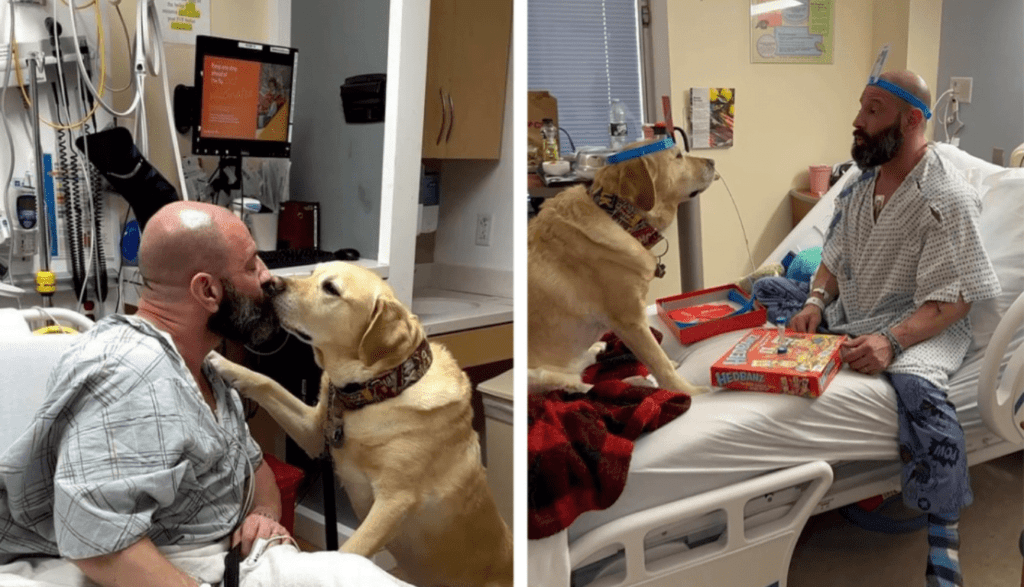
Magnus and Brian Benson during his stay in the hospital in late January 2023. (Courtesy of Brian Benson and magnusthetherapydog)
Magnus is a task-trained service dog, and the six-year-old yellow labrador retriever knew how to care for his human. He and Benson are a team, and they often visit terminally ill patients and grieving families to comfort them.
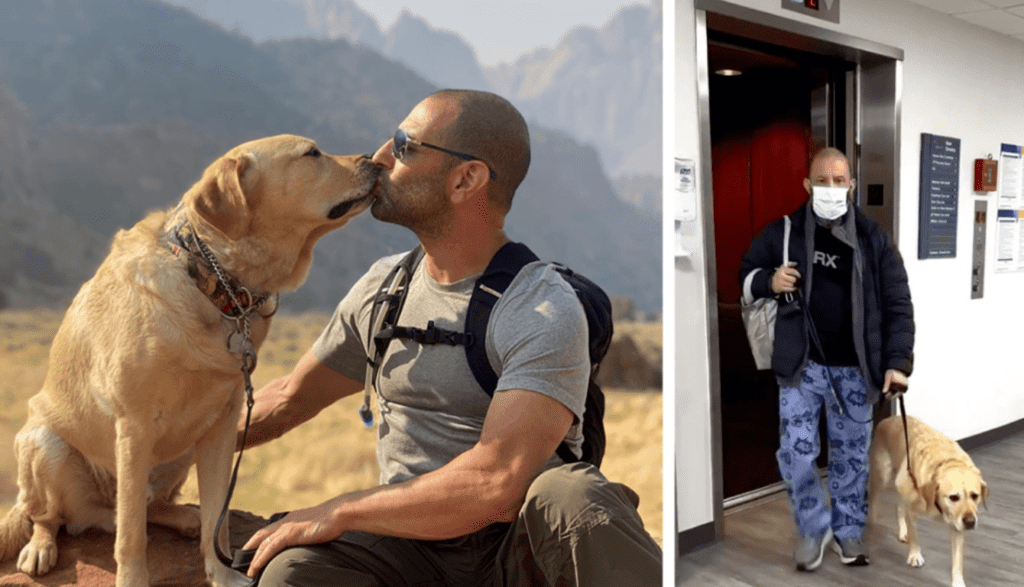
In this case, Magnus was providing comfort for Brian. They had adopted him as a family pet, but when they saw how easy it was for him to take care of the people in the family, they had Magnus trained as a therapy dog.
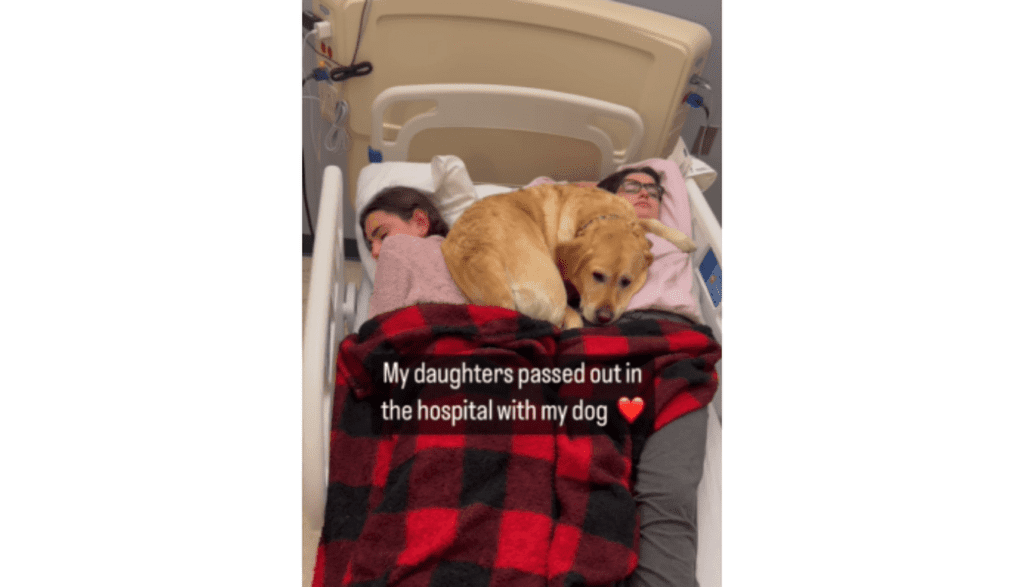
In the end, Benson was over-thrilled that he had Magnus there by his side. He also learned that he had cardiomyopathy, which means his heart is not working as well as it could.
Benson shared the story on social media and videos of his dog sleeping next to him. He also showed how the dog kept his daughters company during difficult times.
